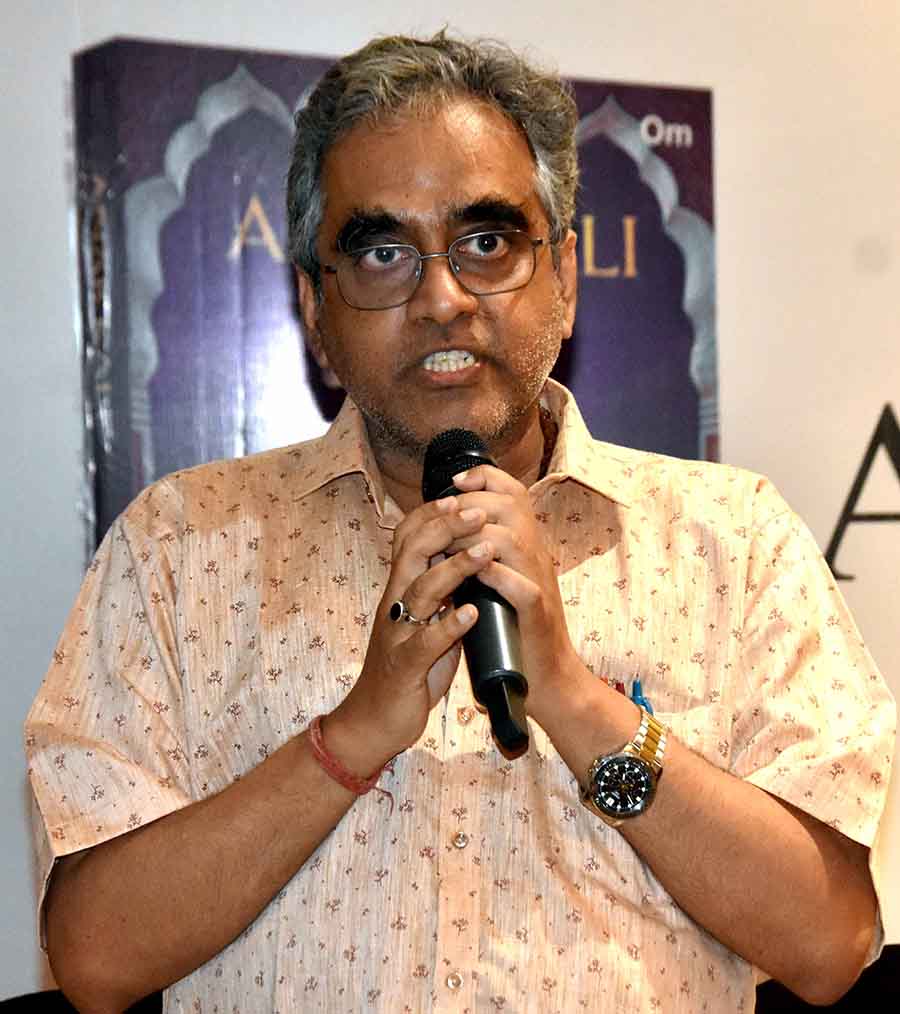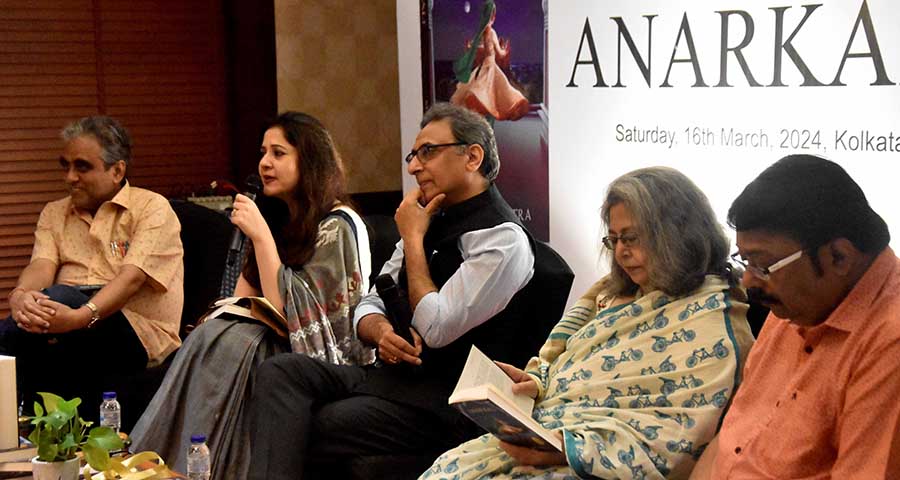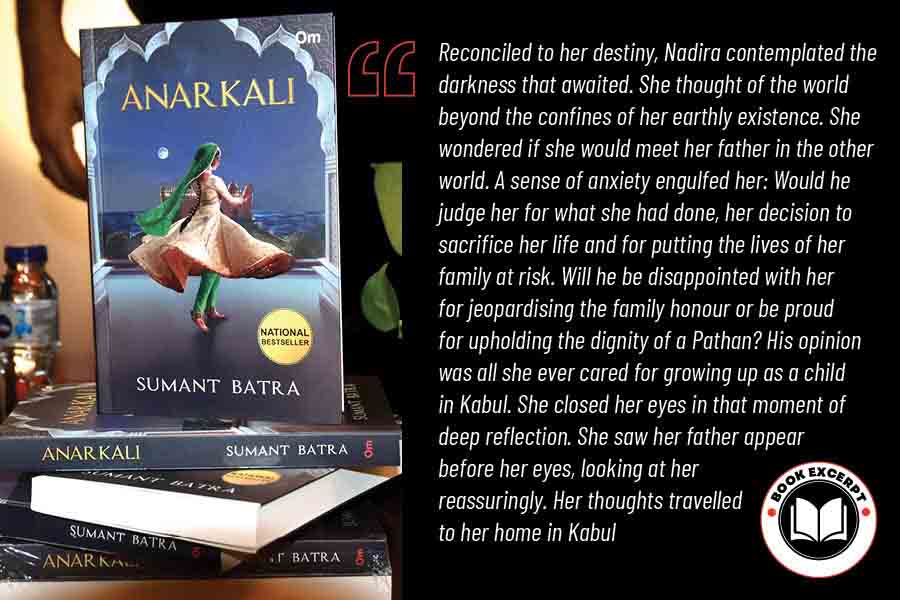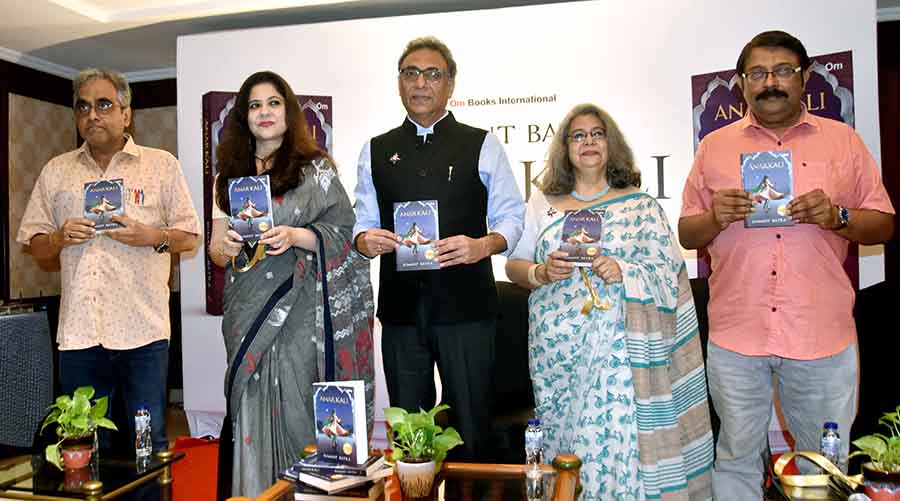
Salim and Anarkali are two names, forever intertwined, synonymous with tragic, unfulfilled love. Fascinated by the lack of discourse surrounding Anarkali, lawyer-author Sumant Batra dedicated a decade researching about her. The result is his novel, ‘Anarkali’, a fictional biography that delves into her life and era. Batra was in Kolkata on March 16 to launch his novel at The Astor
Photos: Ashim Paul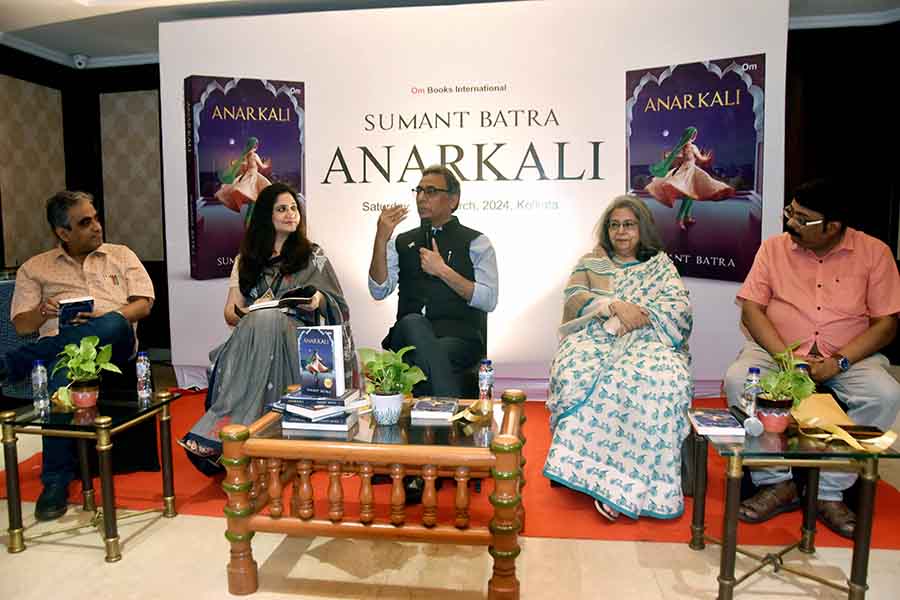
The book launch was accompanied by a conversation between (L-R) OM Books International editor-in-chief Shantanu Ray Chaudhuri, writer and social activist Saira Shah Halim, writer Anjum Katyal and National Award-winning director Ashoke Viswanathan. ‘Five years ago, a tour guide in Fatehpur Sikri showed me a locked door, and said that Anarkali had escaped to Delhi through it. That conversation intrigued me so much that I set out on a path to find the truth about this woman,’ said Batra
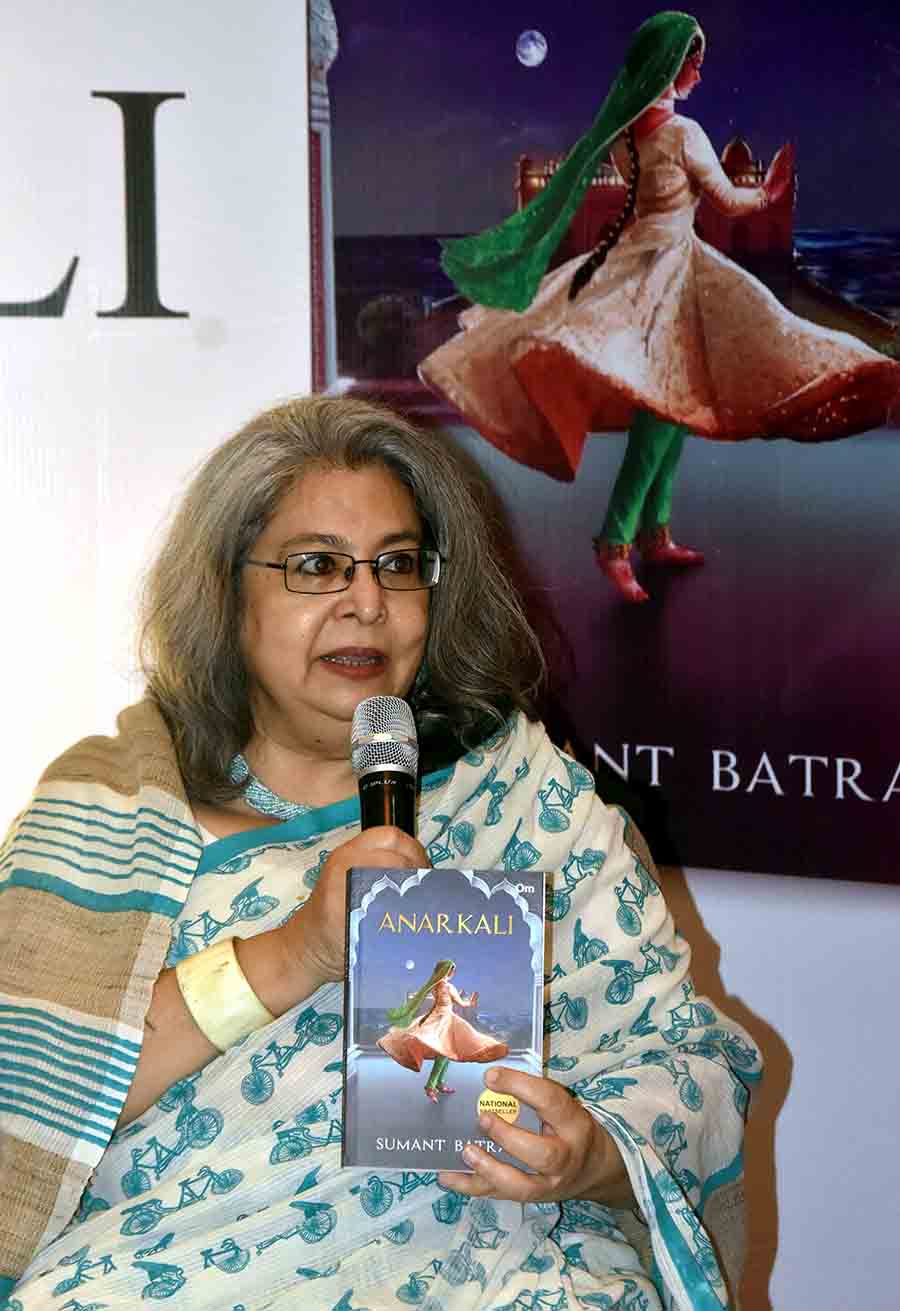
Anjum Katyal felt that the inaccessibility and the mysterious allure of Anarkali’s story would instantly draw readers. She also appreciated Sumant’s detailed historical research, which was seamlessly woven into fiction. ‘With this book, you don’t just get statistics and facts about the Mughals, but understand them as real people with hopes and disappointments. This complexity allows readers to connect with the characters,’ she said
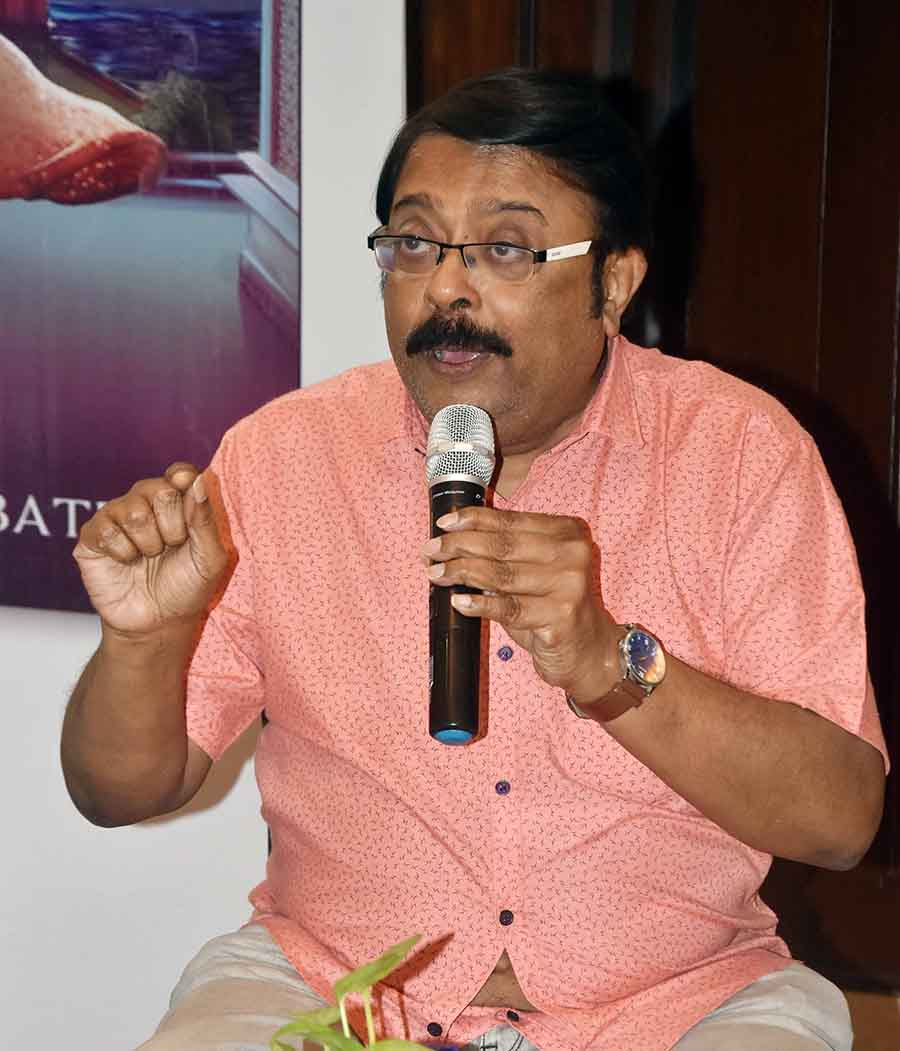
When Ashoke was asked about the book being adapted into a film, he remarked that its strength was its distinctness, which could pave the way for a film very different from ‘Mughal-E-Azam’. ‘This is on the lines of a great historical fiction, and I would even compare this to ‘The Enchantress of Florence’ by Salman Rushdie. Apart from the details, it also leaves space for readers to conjecture, whether it is truth or myth,’ he said
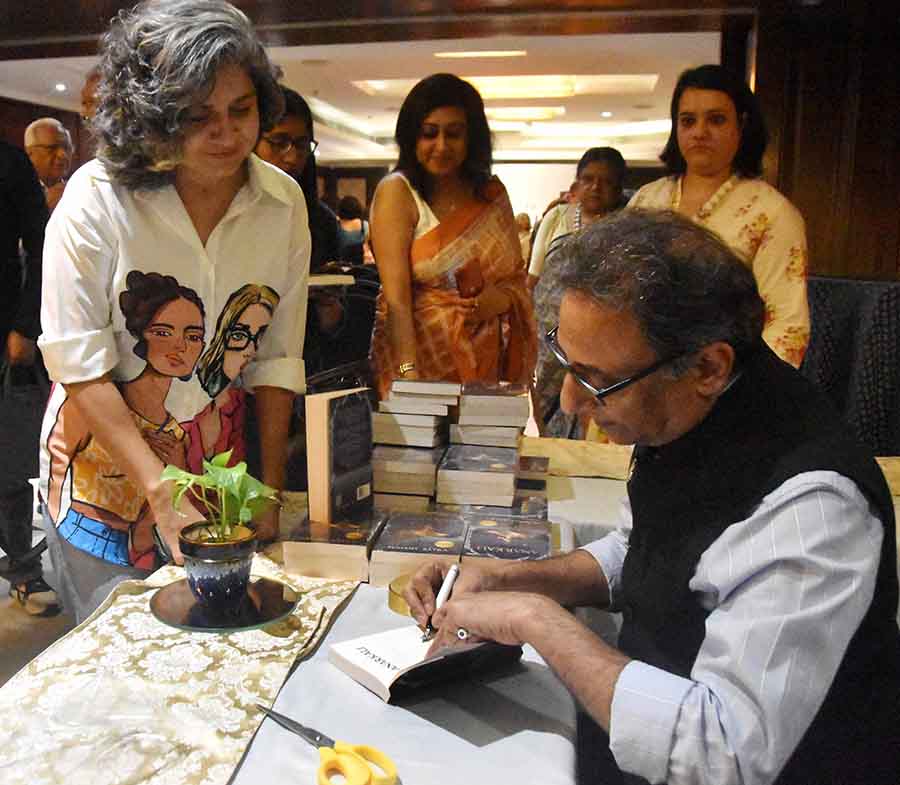
The event sparked interest in people across disciplines. Fashion designer Sajda Rahmani felt inspired by the book that influenced her to infuse fresh perspectives into her designs.‘My first collection was based on the Mughal era, and I have always been inspired by Anarkali. This event taught me so much more about her beyond the films,’ she said
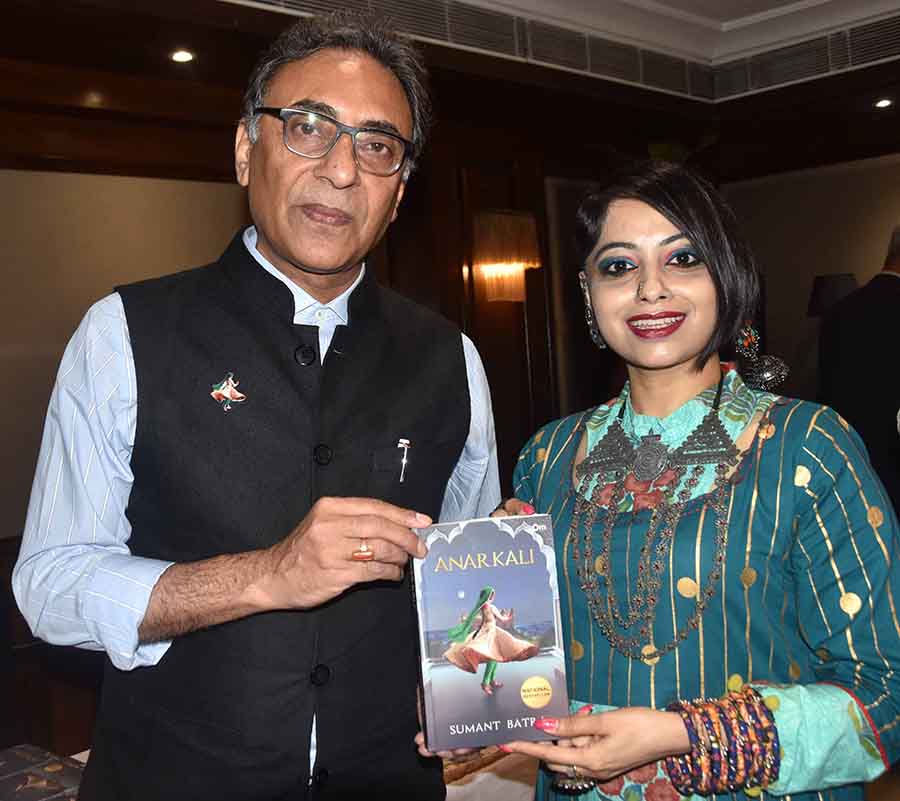
Fellow author Adwitiya Datta Banik was intrigued by how the book blends history, fiction and myth. ‘Numerous versions depict Anarkali’s social scars as a mistress or a faithful broken lover. However, the book presents her as an empowered character, embodying resilience, chastity, and a lineage of virtues inherited from her family in Lahore,’ she noted
